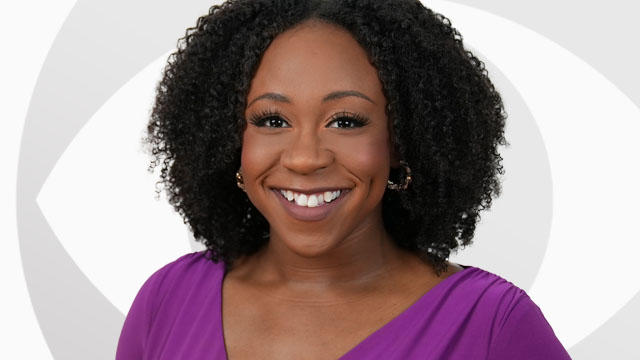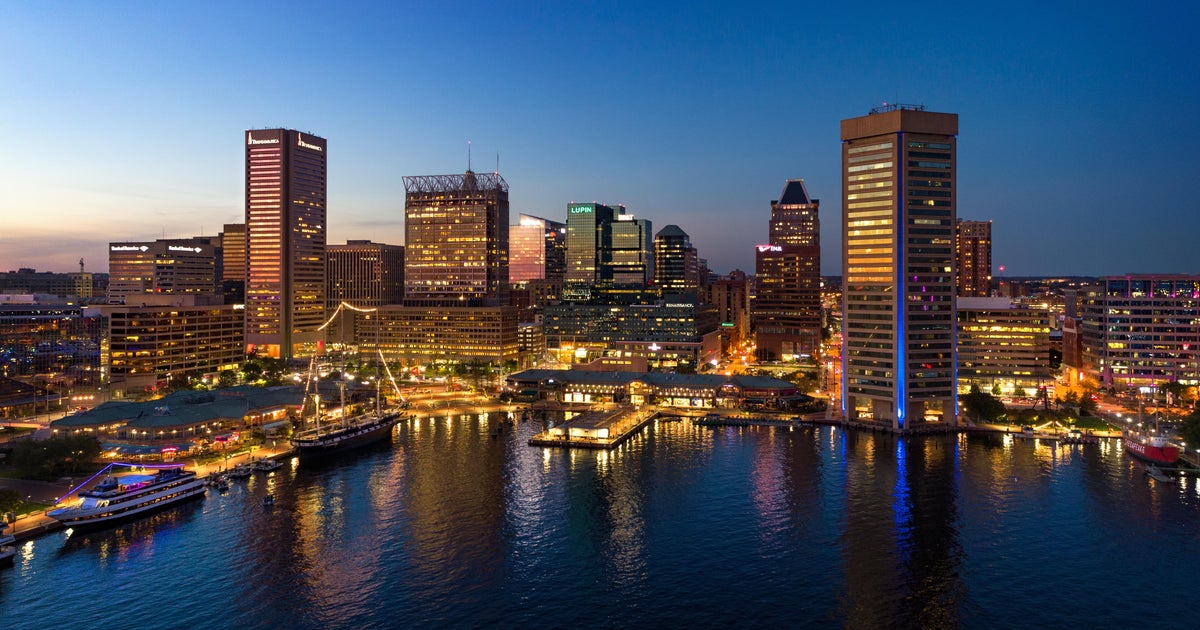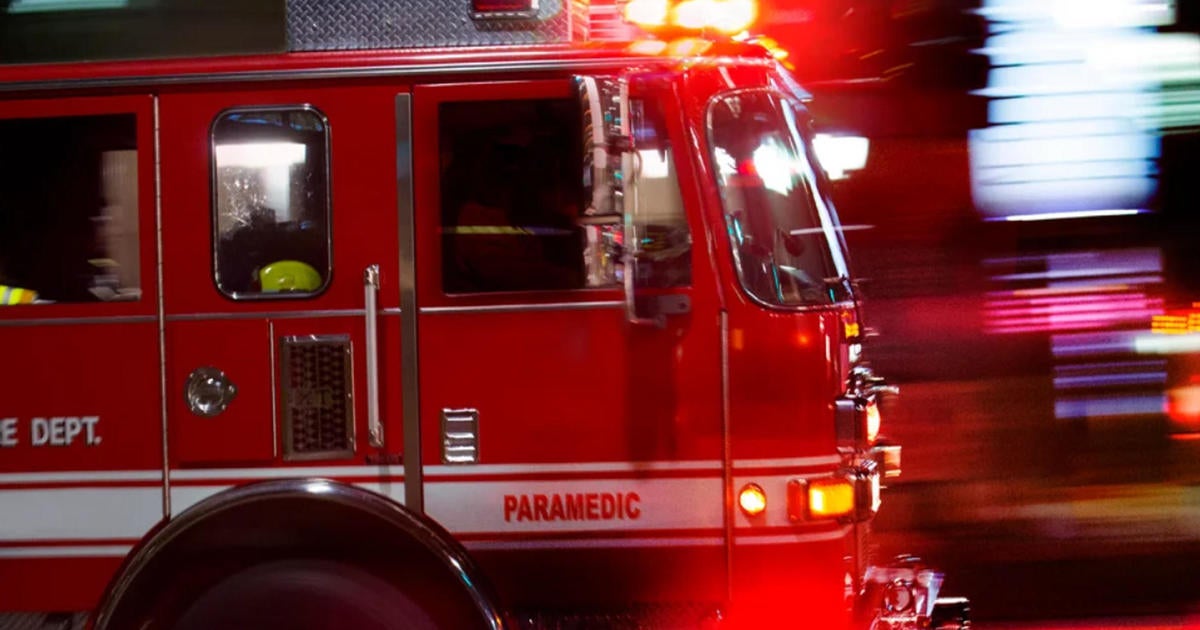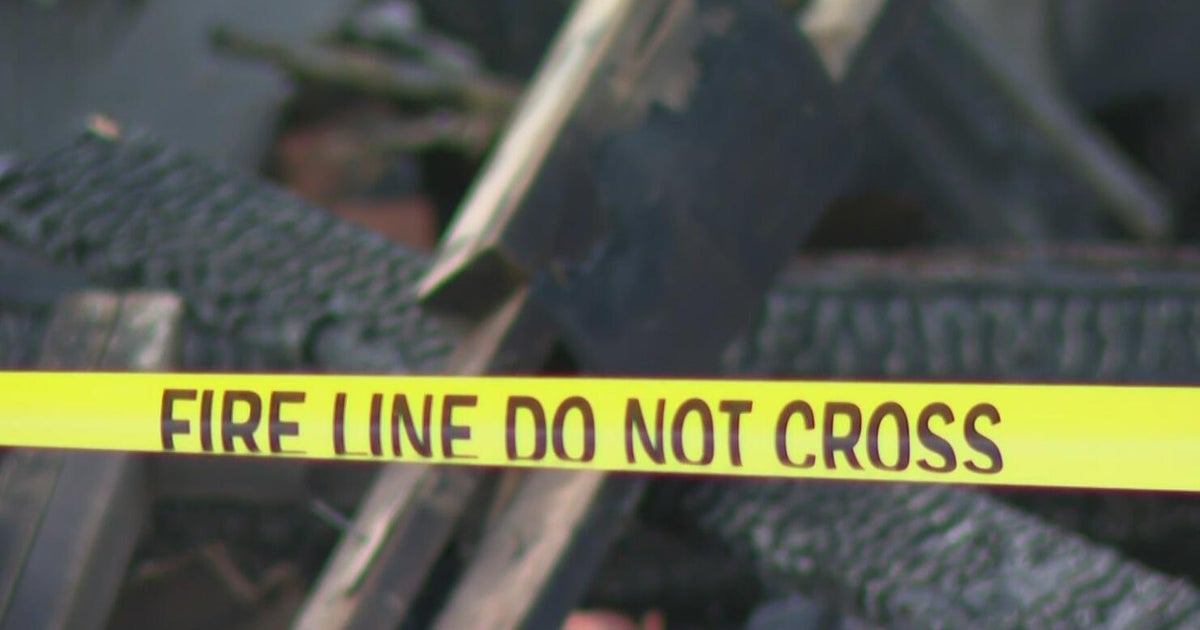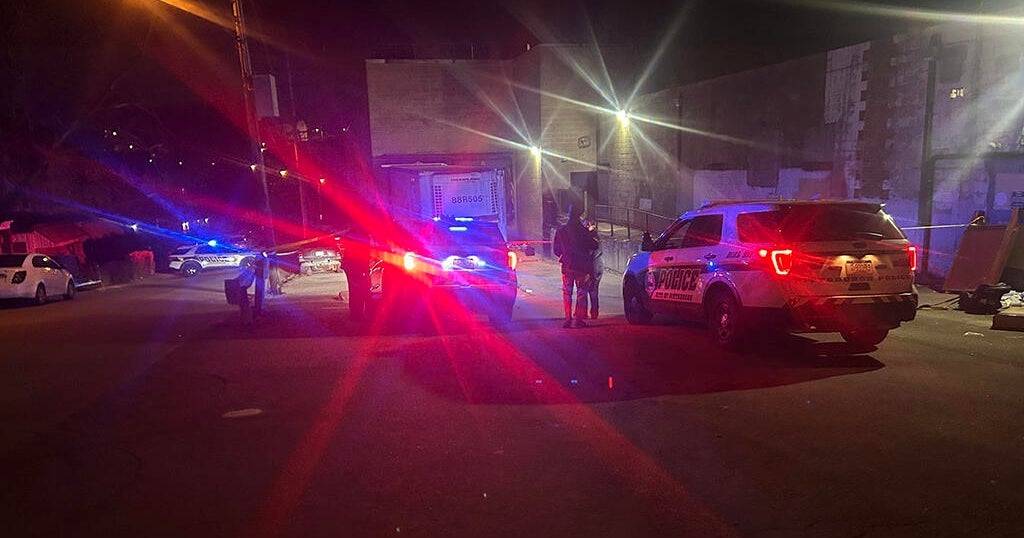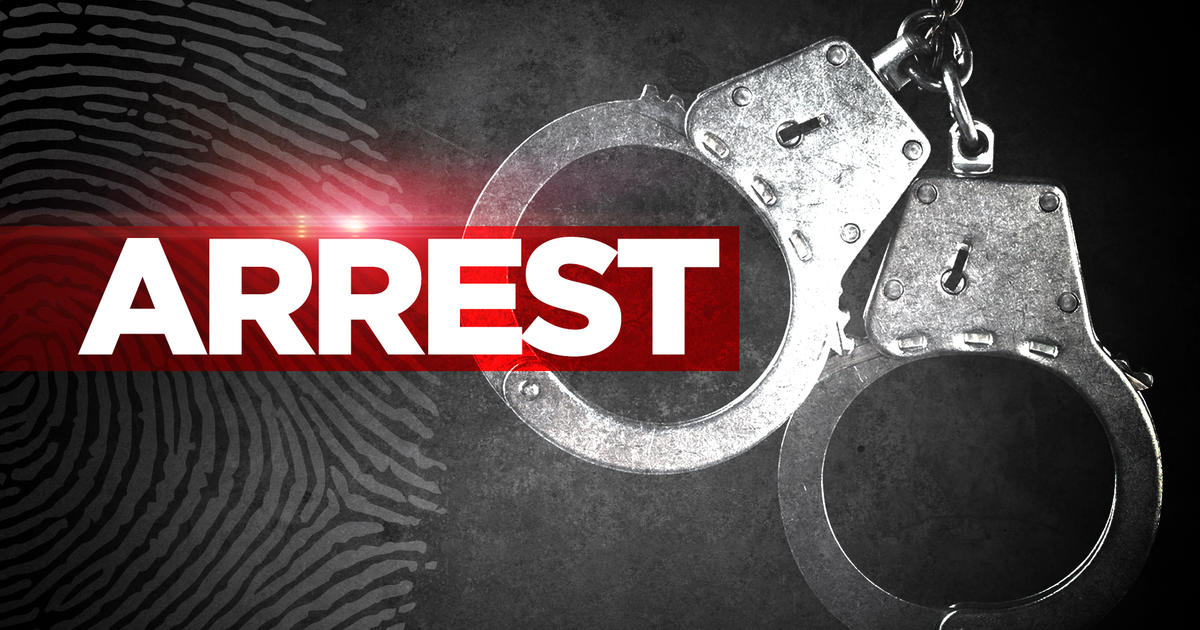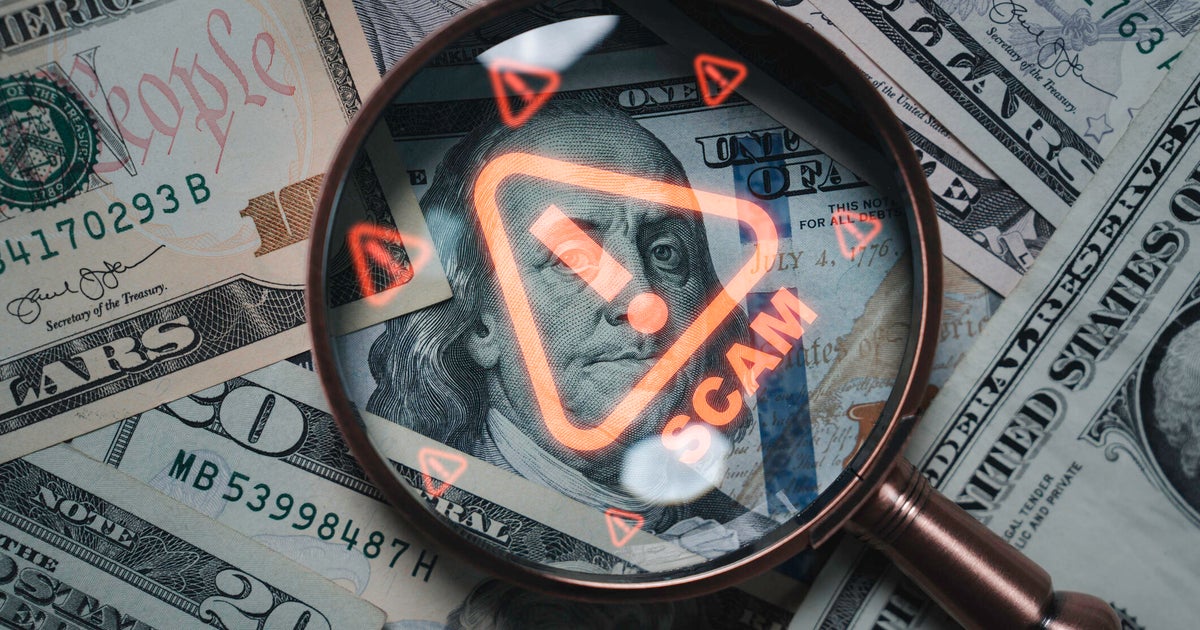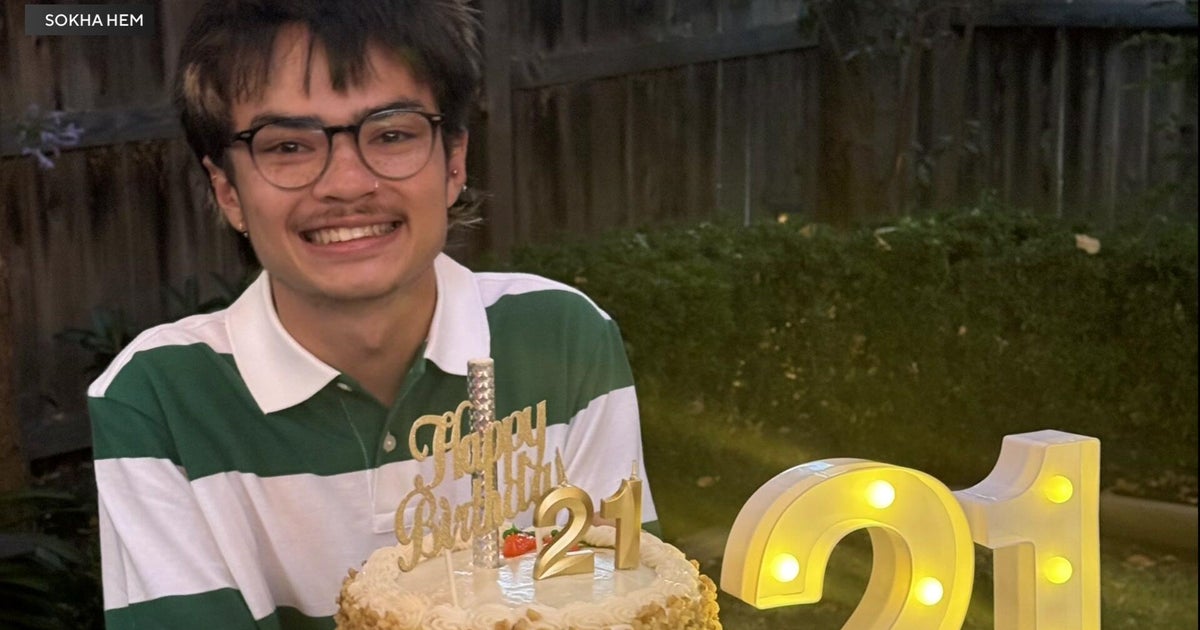A look inside of Baltimore's effort to combat human trafficking using a single 'Blue Dot'
BALTIMORE-- Baltimore-area hospitals and responders are leading an effort to help identify the signs of trafficking they say are often overlooked.
Leaders say they have created one of the most extensive coordinated programs any major city has seen to respond to human trafficking.
It is all apart of the Baltimore City Human Trafficking Collaborative and it is called the Blue Dot Human Trafficking Initiative.
Blue Dot's home is centered at Mercy Medical Center in Baltimore.
It was recognized by the White House earlier this year and received a presidential award for their approach in helping human trafficking victims and survivors.
"It is happening right under your noses," said Debra Holbrook, the director of Forensic Nursing At Mercy Medical Center.
"It happens more than we know,'" said Thomas 'Tom' Stack With The Baltimore City Human Trafficking Collaborative.
It can happen virtually anywhere.
"Maryland is a hotbed for trafficking. You know, Baltimore is right in the middle of it," said Stack. "Our proximity to I-95. airports, our airports. We have casinos, we have major sporting events, we have everything."
"Sex trafficking is very out in the open here . Labor trafficking is more behind the scenes right the massage parlors, the brothels, the restaurants, maybe the hotel industry." said Holbrook.
Holbrook says she sees the aftermath of trafficking firsthand.
She has more than 30 years of experience working with trafficking victims at Mercy Medical Center.
"We are the designated center here at Mercy for the entire city for all sexual assault, domestic violence, anything where a patient lives from their crimes. So, we were the natural center point of intake for human trafficking when Blue Dot was designed," said Holbrook.
When a first responder or social services provider in Baltimore suspects a person is the victim of human trafficking they can call in a "blue dot " and arrange for help from a nurse – like Holbrook –trained in forensic exams and caring for victims of crimes and trauma.
This Blue Dot Initiative coincides with the Baltimore City Human Trafficking Collaborative– an effort between the city of Baltimore, more than three dozen agencies and organizations all with the same goal.
"So, if say, a law enforcement recovers a trafficking survivor at two o'clock in the morning, they have a safe place to go," said Stack. " They have to take that survivor to somebody who understands them and will care for them and then hand that person off to services on the back end. So, it's almost like a conduit from an emergency situation in a hotel room or on the street to long term services or housing or anything they want."
Stack often shares the stage with Holbrook when discussing and addressing human trafficking, this includes the training and workshops done to educate emergency personnel and law enforcement.
Together they meet survivors where they are.
"It is a salad bar where patients can choose what they're comfortable choosing," said Holbrook. "They might not trust us; they may choose nothing. But we found that 29% of people who don't accept services returned when they hit the rock bottom. So, they felt safe. They felt embraced,"
"They're like snowflakes, no two are alike. Everything is different. Everything has a different challenge," said Stack.
The program works with various healthcare, school, and other community partners that identify victims – activating the 'blue dot' to get them the services or care they need.
"We're giving them a choice. The choice has been taken from them by their trafficker or all these all these years or months or whatever how long, however long they've been trafficked, so now they have the power to make that decision on their own," said Stack. "It's almost like a conduit from an emergency situation in a hotel room or on the street to long term services or housing or anything they want."
WJZ asked the collaborative what do they want people to take away from their efforts?
"Don't turn a blind eye to what's going on in your community. Make yourself aware of what's going on the streets--- what's going on in people's homes," said Holbrook. "Just an awareness and to get involved."
"Don't turn a blind eye to what's going on in your community."
"Learn, know what to look for. And then if you see him, make the call," said Stack.
Blue Dot reports helping more than 500 people —victims of labor, sex, and familial trafficking in the last five years.
"It's important for us to get the word out there because you don't know what you don't know. And a lot of the myths around human trafficking need to be debunked. Because there's victims out there," said Stack. "They're not too far away from where we sit right now."
Program Background:
In 2017, the City of Baltimore took on this challenge by pioneering a grassroots effort joining over 50 critical agencies including: medical, law enforcement, Homeland Security, FBI, US Attorney's Office, Maryland's States Attorney's Office, Department of Health, Department of Transportation, School Systems officials, and a host of advocacy organizations to form the Baltimore City Human Trafficking Collaborative (BCHTC) to change the care and prosecution of the most vulnerable victims of abuse.
Together they raise awareness through education, law enforcement training, and campaigns. Plus, they work to change the mindset of law enforcement, EMS, and emergency medical staff in understanding trafficking versus "she's just a prostitute."
The program's goal is to support human trafficking survivors by providing them access to services through a victim-centered, trauma-informed approach.
If you or someone you know needs help, please call the National Human Trafficking Hotline: 1-888-373-7888 SMS: 233733 (HELP or INFO).
To learn more about The Baltimore City Human Trafficking Collaborative visit their website. (https://monse.baltimorecity.gov/human-trafficking-collaborative)
